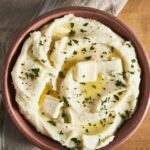If you’re a fan of Thai tea, then you may have wondered if it contains caffeine. After all, this vibrant and creamy beverage is made from black tea leaves steeped in herbs and spices like cardamom, star anise, cinnamon sticks, and vanilla beans — ingredients that are traditionally used to make caffeinated beverages like coffee or chai. To find out the answer to your question: does Thai tea have caffeine? we’ll be taking an in-depth look at each of its components as well as the factors that influence how much (or how little) of this stimulant ends up in your cup. Read on for more information.
Contents
Introduction About Thai Tea
Thai tea is a sweet and refreshing beverage that originated in Thailand. It’s made by combining black tea leaves, sugar, condensed milk, and an array of flavorful spices such as cardamom, star anise, cinnamon sticks, and vanilla beans. This combination creates a creamy orange-colored beverage with a distinct flavor. While most people enjoy Thai tea as a hot drink, it can also be served cold or as a frappé.
Before we dive into does Thai tea have caffeine, let’s watch this video to know more some information about Thai tea.
A Brief History Of Thai Tea
The history of Thai tea is deeply intertwined with the culture of Thailand. It’s believed to have been created in the early 20th century by a Chinese immigrant who was looking for a way to recreate the taste of his homeland’s traditional drink, Tai Cha. After experimenting with various ingredients and flavor combinations, he came up with a recipe that eventually became known as “Thai tea”. Over the years, it has become a beloved national beverage and is now enjoyed around the world.
Does Thai Tea Have Caffeine?
Now that we’ve covered the history and components of Thai tea, let’s get to the question at hand: does thai tea have caffeine? The simple answer is yes, as it contains black tea leaves which are naturally caffeinated. However, the amount of caffeine in Thai tea can vary depending on how the beverage is made and where its ingredients come from. For instance, if you brew Thai tea from loose-leaf tea instead of tea bags, it may contain more caffeine. Additionally, the strength and origin of the black tea leaves used can also affect the caffeine content — Chinese teas tend to have higher levels than those made with Indian or Sri Lankan varieties. So while it’s safe to say that there is some caffeine in Thai tea, the exact amount can vary.
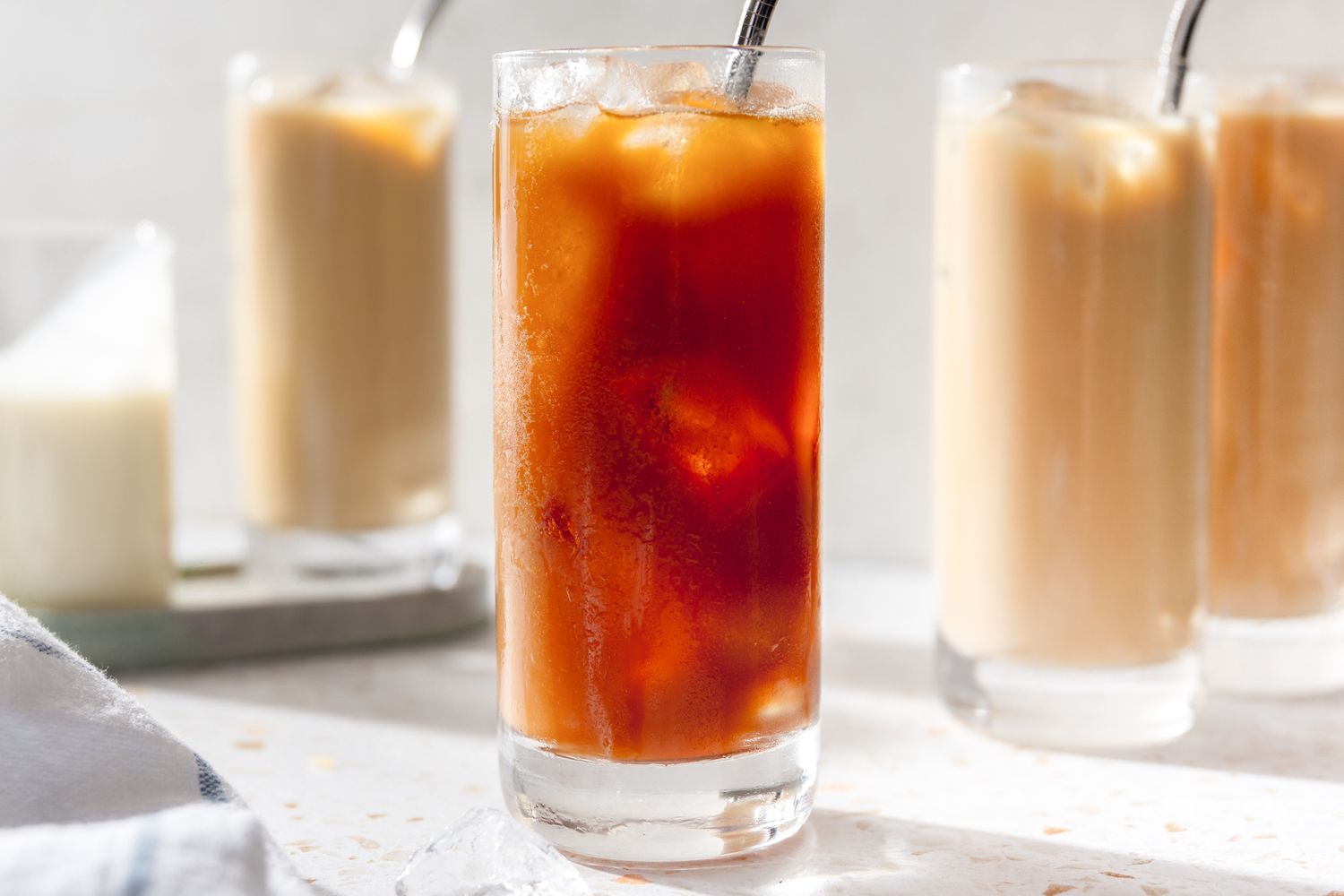
Why We Need To Know Does Thai Tea Have Caffeine?
Understanding the level of caffeine in Thai tea is important, especially if you’re sensitive to stimulants or have a health condition that requires you to stay away from them. It can also help you manage your overall daily caffeine intake so that you don’t exceed your recommended limit. Most experts suggest limiting yourself to no more than 400 mg of caffeine per day (about four cups of coffee). Knowing how much caffeine is in your favorite beverage can help you stay within that limit and make sure that you’re not over-consuming this powerful stimulant.
How Much Caffeine Is In Thai Tea?
The exact amount of caffeine in Thai tea can vary depending on the type and strength of the black tea leaves used as well as how it’s brewed. Generally speaking, a cup of Thai tea (8 ounces) contains approximately 40-60 mg of caffeine. However, if you’re using higher quality tea leaves or brewing your own from loose leaf tea, then the caffeine content could be much higher. If you’re looking for a caffeine-free alternative, then you might want to consider herbal tea instead. Herbal teas don’t contain any actual tea leaves and are naturally caffeine-free.
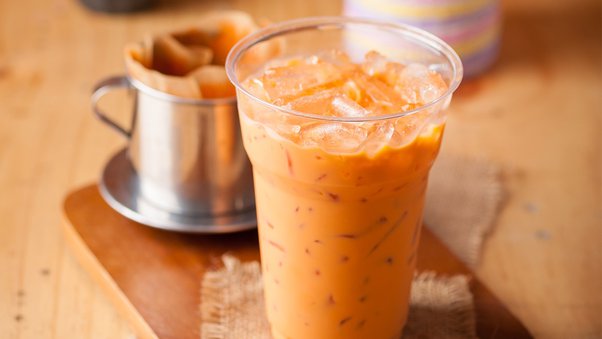
Variations Of Thai Tea And Caffeine Content Of Them
There are several different variations of Thai tea, each with its own unique flavor and caffeine content. For instance, the popular “Thai iced tea” is a sweetened beverage made by mixing black tea with coconut milk and sugar. This variation tends to contain more caffeine than regular Thai tea since it’s usually brewed with stronger leaves. Another variation is “Thai Green Tea” which is made using green tea leaves instead of black and has a much lower caffeine content. Finally, there’s “Thai Chai Tea”, which contains the same spices as regular Thai tea but is usually brewed with caffeinated chai spices such as ginger, cloves, cardamom, and cinnamon. This variation can contain anywhere from 40-60 mg of caffeine per 8 ounces.
Factor Affect To Caffeine Content In Thai Tea
As we’ve discussed, the caffeine content of Thai tea can vary depending on a variety of factors. The type and strength of the black tea leaves used are some of the most important ones. For instance, Chinese teas usually contain higher levels than those made with Indian or Sri Lankan varieties. Additionally, brewing your own tea from loose-leaf instead of tea bags can also increase the caffeine content.
The brewing method is another factor that affects the amount of caffeine in Thai tea. For instance, if you steep your tea for longer than recommended, it will release more of the stimulant into the beverage. Additionally, adding sweeteners like honey or sugar can also increase the caffeine content by making it easier for your body to absorb it. Similarly, using too much condensed milk or other dairy products can inhibit the absorption of caffeine and lead to a lower content in your cup.
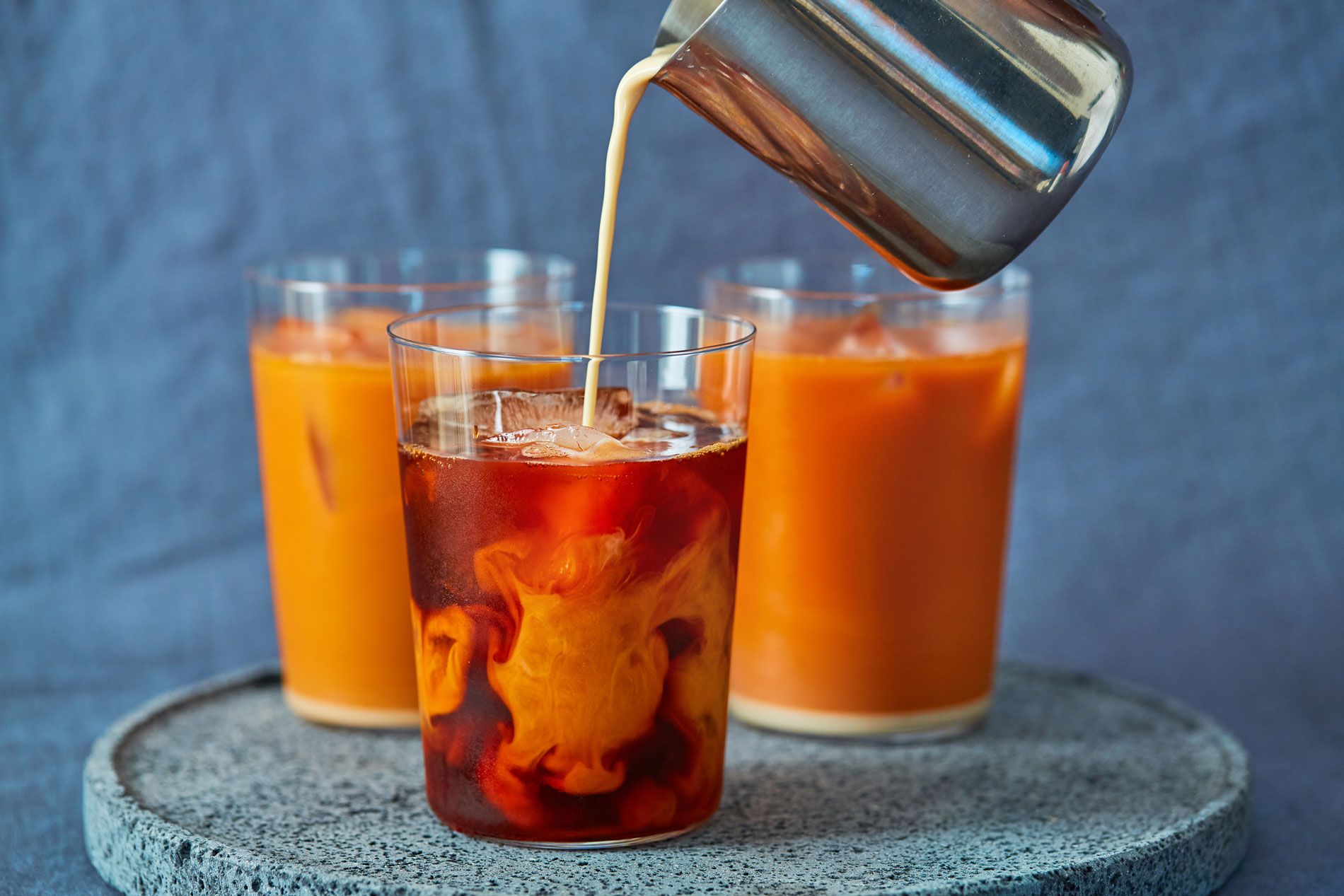
Caffeine In Thai Tea Compared To Other Types Of Tea
When it comes to caffeine content in tea, Thai teas usually fall somewhere in the middle. For instance, compared to other types of black tea such as English Breakfast and Earl Grey which can contain up to 70 mg of caffeine per 8 ounces, Thai tea has a slightly lower amount — approximately 40-60 mg per 8 ounces. Similarly, when compared to green teas such as Matcha or Sencha which can contain up to 40 mg of caffeine per 8 ounces, Thai tea still has a higher content. Lastly, when compared to herbal teas such as rooibos and chamomile which don’t contain any actual tea leaves and are therefore naturally caffeine-free, Thai tea obviously contains much more. Overall, Thai tea can be a great way to enjoy the taste of black tea while still keeping your caffeine intake in check.
Tips For Reduce Caffeine In Thai Tea
If you’re looking to reduce the amount of caffeine in your Thai tea, there are a few things you can do. For instance, using lower-caffeine tea leaves (such as those from India or Sri Lanka) and shorter brewing times can help keep your levels in check. Additionally, adding dairy products like milk or cream to your cup can also help inhibit the absorption of caffeine. Lastly, using natural sweeteners such as honey or maple syrup instead of refined sugar can also reduce the amount of caffeine in your beverage.
Overall, while Thai tea does contain some caffeine, it’s not too difficult to keep your intake at a moderate level. By following these tips and being mindful of the type and strength of tea leaves used, you can enjoy a delicious cup of Thai tea without having to worry about over-consuming stimulants.
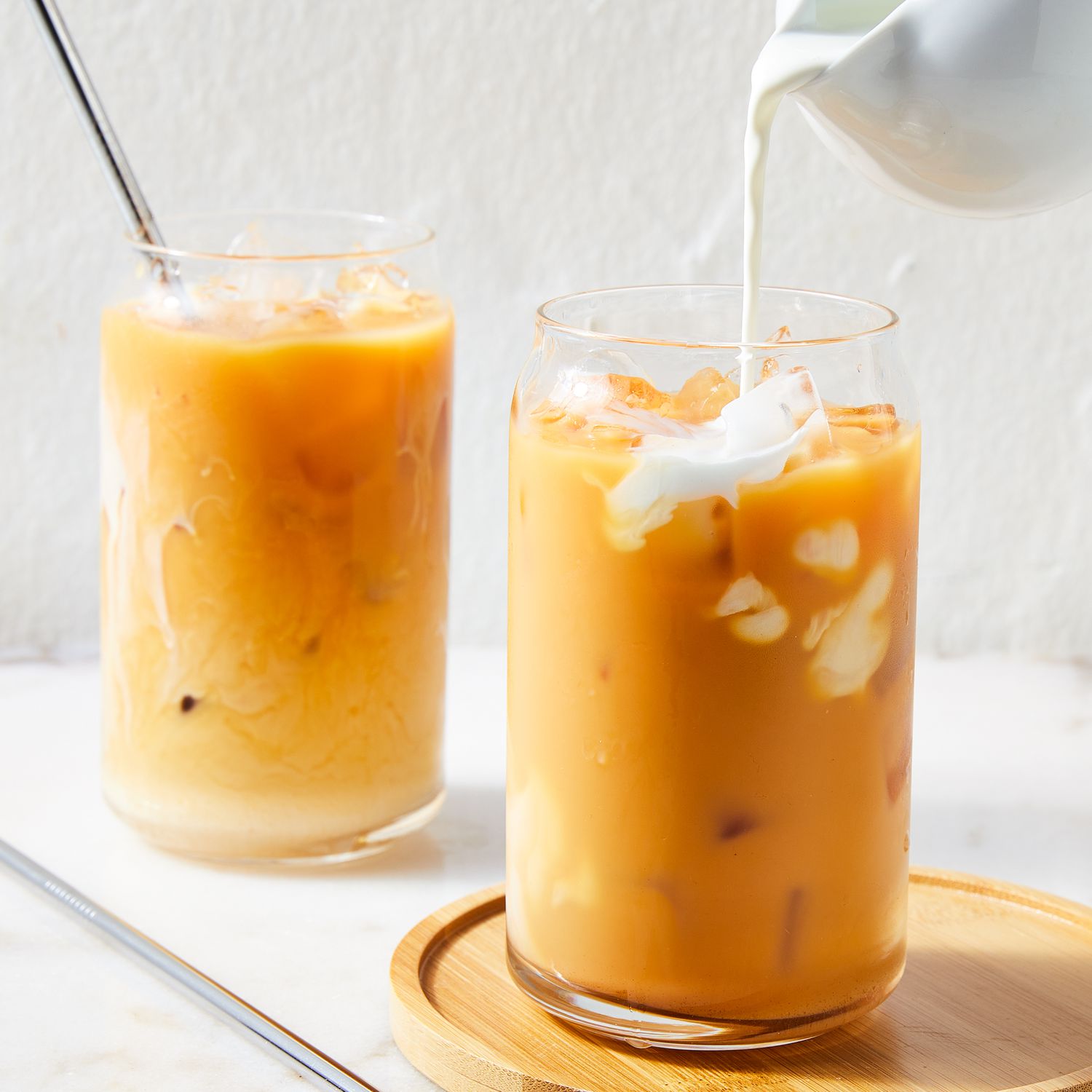
Health Benefit Of Drinking Thai Tea
In addition to being relatively low in caffeine, Thai tea can also offer some health benefits. The black tea leaves used to make this beverage are rich in antioxidants and have been shown to help reduce inflammation and improve heart health. Additionally, they contain compounds called catechins — which have been linked to improved immunity and better overall brain function. Furthermore, the condensed milk used to sweeten Thai tea is an excellent source of calcium — which can help strengthen your bones and muscles. Lastly, the spices added to many variations (such as ginger, cardamom, and cinnamon) are known for their anti-inflammatory properties and can help improve digestion.
Other Ways To Enjoy A Caffeine-Free Thai Tea
If you’re looking for an even healthier way to enjoy Thai tea without having to worry about caffeine, then you can opt for a herbal version. Herbal teas don’t contain any actual tea leaves and are therefore naturally caffeine-free. Popular options include chamomile, hibiscus, rooibos, and peppermint — all of which are packed with antioxidants and have their own unique flavor. Additionally, you can also try adding natural sweeteners such as honey or maple syrup to give your herbal tea some extra sweetness without having to worry about added sugar or calories. However, be sure to check the labels of any pre-prepared beverages since these sometimes contain artificial sweeteners which are not always healthy.
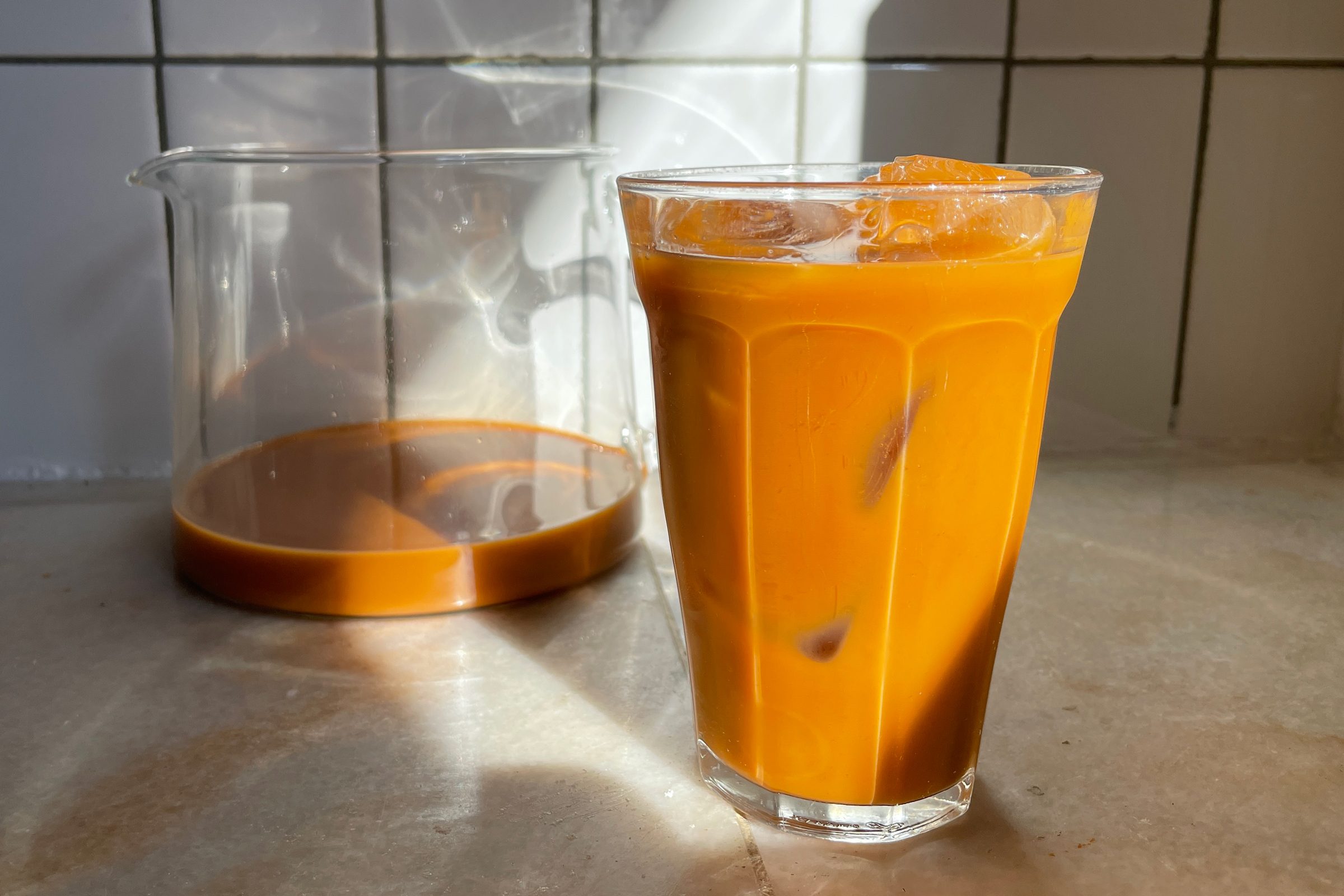
Conclusion: Does Thai Tea Have Caffeine?
In conclusion, does thai tea have caffeine? Thai tea does contain caffeine but it’s not as high as many other caffeinated drinks out there. This makes it a great option if you’re looking for a refreshing and flavorful beverage without the effects of too much stimulation. So the next time you’re in the mood for something delicious, opt for a cup of Thai tea and enjoy its unique flavor without the caffeine overload. Thanks for reading at yongkangstreetnyc.com.
FAQs: Thai Tea
How does Thai tea affect sleep if it contains caffeine?
Drinking Thai tea containing caffeine during the late hours of the day can disrupt your sleep. To promote a good night’s rest, it is advisable to steer clear of caffeinated beverages in the evening and instead consider decaffeinated tea or herbal alternatives.
Does Thai tea have a lot of caffeine?
Get the facts about the caffeine content of Thai tea. Made with black tea, a classic serving of Thai tea contains a moderate 47 mg of caffeine per 8oz. However, for those seeking lower caffeine options, decaf Thai tea and alternative tea types can be substituted.
Is Thai tea higher in caffeine content compared to green tea?
Thai tea is typically prepared using black teas like Ceylon or Assam, which tend to have higher caffeine levels than other tea variants like green and white teas. If you’re seeking a stimulating drink, Thai tea could be an excellent option for you.
Is Thai tea more caffeinated than black tea?
Thai iced tea is believed to have slightly higher caffeine content than black tea, but the exact difference is hard to measure.
Does Thai tea have more caffeine than coffee?
Contrary to popular belief, Thai tea does not contain more caffeine than coffee. A standard cup of coffee typically contains 95-200 mg of caffeine, while an 8 oz. cup of Thai tea only has 20-40 mg. For individuals who want to limit their caffeine intake without sacrificing flavor and aroma, Thai tea is an excellent choice.
Is Thai tea traditionally caffeinated?
Thai tea does have caffeine, but it contains less compared to other teas. A regular cup of Thai tea contains about 20-40 mg of caffeine, while a cup of black or green tea can range from 40-120 mg.
Does the caffeine content in Thai tea vary based on the recipe?
In addition, the duration of steeping the leaves for Thai iced tea can affect the caffeine content. Therefore, the caffeine content in a delicious Thai tea can range from 20-60 mg, depending on the preparation method. It is important to note that whole, condensed, or evaporated milk does not contribute any caffeine.
Is Thai tea good or bad for you?
Like many forms of herbal tea, Thai tea is rich in antioxidants that can help you maintain a healthy immune system. Studies have shown that Thai tea has similar levels of antioxidants as green tea and other herbal teas popularized specifically for their anti-inflammatory benefits.
Is Thai tea safe for pregnant women to drink if it contains caffeine?
Thai tea, a variant of black tea, is considered safe for pregnant women to consume in moderate amounts. It is recommended to limit consumption to one or two cups per day, as the exact caffeine content can vary.
What is traditional Thai tea made of?
Discover the delightful recipe behind traditional Thai tea. This refreshing beverage is crafted from the perfect blend of robust black tea, infused with exotic spices like star anise, crushed tamarind, and cardamom. Adored by masala chai tea enthusiasts, it is further enhanced with a touch of sweetness from sugar and luxurious sweetened condensed milk. Served chilled over ice, Thai tea is the epitome of a satisfying and invigorating drink.
What makes Thai tea different than regular tea?
Discover the unique allure of Thai tea: smoother, sweeter, and creamier. Made with the perfect balance of sugar and condensed milk, it offers a refreshing coolness and indulgent thickness. While its mouthfeel is irresistibly creamy, the infusion of spices adds a comforting warmth. All this, complemented by the distinctive flavor of carefully selected black tea. Experience the tantalizing difference of Thai tea.
Why is Thai tea so orange?
Discover the secret behind the vibrant appeal of Thai tea. The striking, orange hue is achieved through the artful use of food coloring. By infusing black tea with Thai Tea Mix, this beverage gains its distinct and alluring color. Unveiling the brewed tea’s natural deep red shade, the addition of food coloring transforms it into a visually stunning treat. Don’t miss out on exploring the captivating world of Thai Iced Tea and its orange allure.

Chef Yong Kang has over 20 years of experience cooking in the finest restaurants, and is excited to present their vision to you and all our guests. Our caring and committed staff will ensure you have a fantastic experience with us.
We are also available for private events:, business lunches, dinners, and more. We would love to discuss how to be a part of your next event.Our restaurant refuses to compromise on quality, which is why we source our fresh ingredients from local farmers’ markets.







